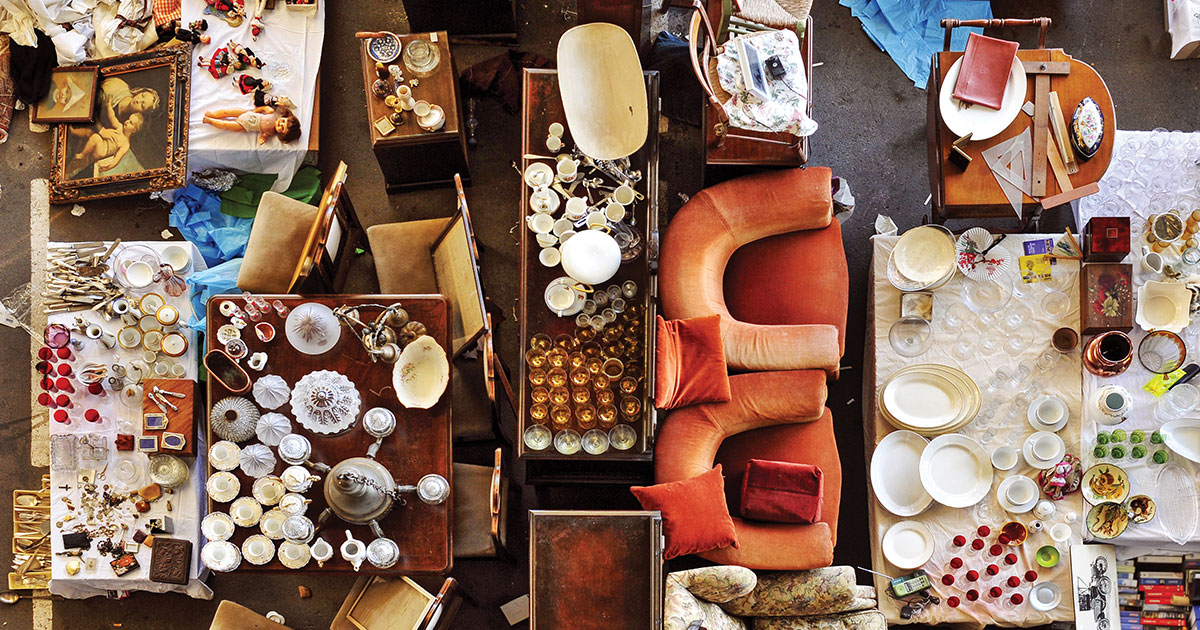Joshua Becker, a proponent of minimalism and intentional living, has a challenge for those of us who grapple with having too much stuff. He says, “The first step in crafting the life you want is to get rid of everything you don’t.” If you are anything like me, my first reaction is, “Well, easier said than done when it feels like a perpetual tug-of-war of To Keep or Not to Keep.” And yet, if I am perfectly honest with myself, I recognize that every time I’ve moved on…from a life, or a lifestyle, a house, or an office, a piece of clothing or a wardrobe, I feel better.
The question at the heart of this drama is why we cling to things, objects, and possessions that are no longer relevant to our here and now. If you tend to beat yourself up about your clinginess, please don’t! It turns out that our tendency to create attachments to things starts at birth. Babies have screaming fits when a binky is replaced; toddlers prefer favorite objects over brand new replicas, and adolescents identify with all manner of things that mark their transition into early adulthood. Throughout our lives, we continue to identify with material things that signify our status, social class, and of course, our memories. It catches up with us and we have a hard time letting go. Here’s why:
It’s emotional. “My Great Aunt Betty gave me this set; I couldn’t possibly let it go.” Or, “I wore this on my honeymoon 34 years ago.”
It’s a guilt trigger: “I paid good money for this. There’s no way I’m trashing it.” It’s a trap labeled “someday”: “I might need this someday. Who knows?”
Our tendency to cling is normal, and so is our knee-jerk response to persist in rationalizing why we won’t let go. If that’s where you find yourself, take a deep breath and allow yourself to consider the price you pay for getting stuck with all of that stuff. You may find that the more you have, the more you have to store, clean, and keep track of. The more you have, the less focused you are on the things that work in the present, unfettered by yesterday’s memories, useless guilt, or tomorrow’s promises. By managing the obsolete, you get to focus on what brings you joy and works for your life right now. You also reduce that nagging sense of overwhelm and put yourself back in control. It’s not too big a stretch to say that letting go is the gateway to crafting the life you want, starting with your material stuff.
Whether it’s clearing out the attic, excavating your closet, or simply getting a handle on all of that costume jewelry, it’s a good idea to create a set of workable criteria to help you get started. For example:
If there’s an emotional reason that’s holding you back, you might designate a single box to contain those heartfelt treasures. Instead of keeping all of Great Aunt Betty’s china, which, to be honest, you would never have picked for yourself and don’t intend to use, then keep the vase or a single serving platter that complements what you do use. Take a photo of the rest and bless it on its journey forward via consignment, a thrift shop, a gift to a grateful friend.
If it’s guilt that keeps you stuck, remember that you made the best choice at the time. No one ever knows for sure how useful or useless a purchase may end up being. Most of the time, you make a great choice, right? Focus on that and own the not-so-perfect choices. Then, consider how your useless or imperfect- for- you item could be useful or perfect for someone else. Sell, donate, or gift…and remember how good that makes you feel.
If it’s the “someday” lure that keeps you trapped, knock yourself on the head ever-so-lightly and remind yourself that this logic suggests that everything in the universe might just, possibly, maybe, someday be useful. Sure, be judicious, but 90% of what falls into this category is not likely to prove useful in the future. Give it a new purpose in the here and now by donating, selling, or gifting.
I’m with Joshua. Crafting the life I want begins with getting rid of what I don’t want.


















